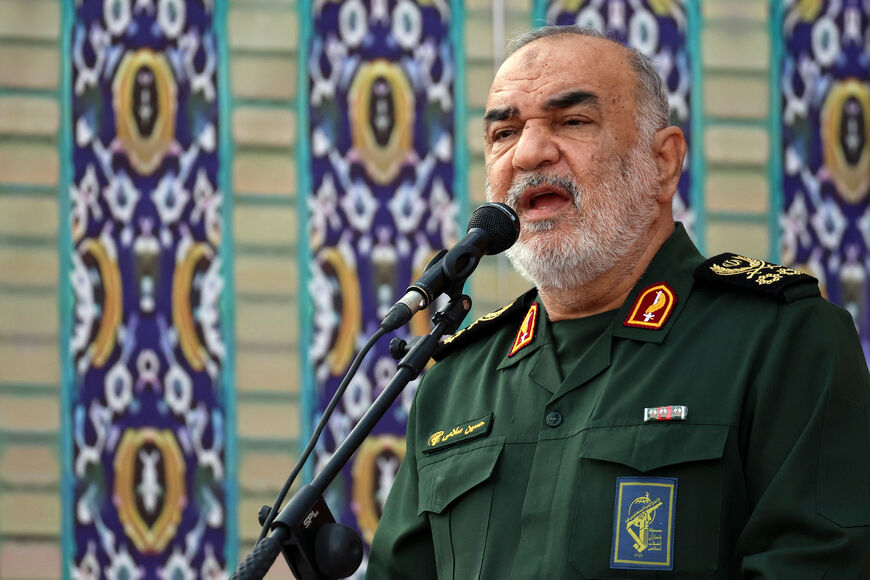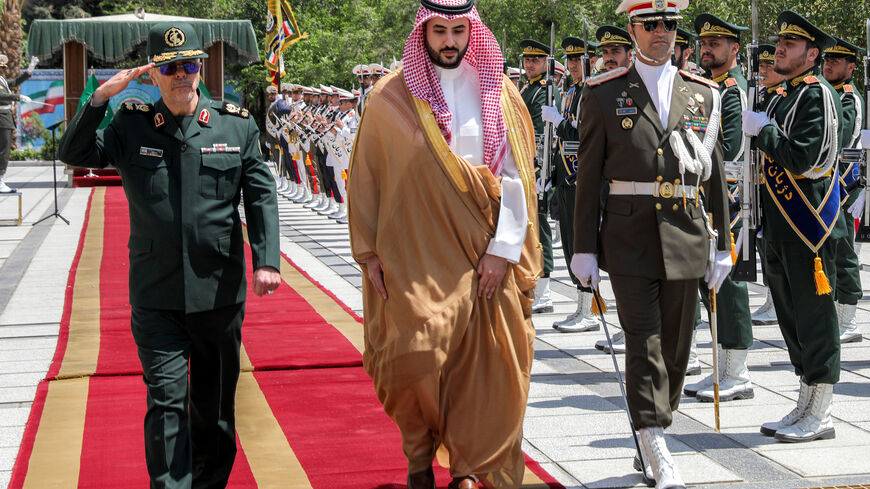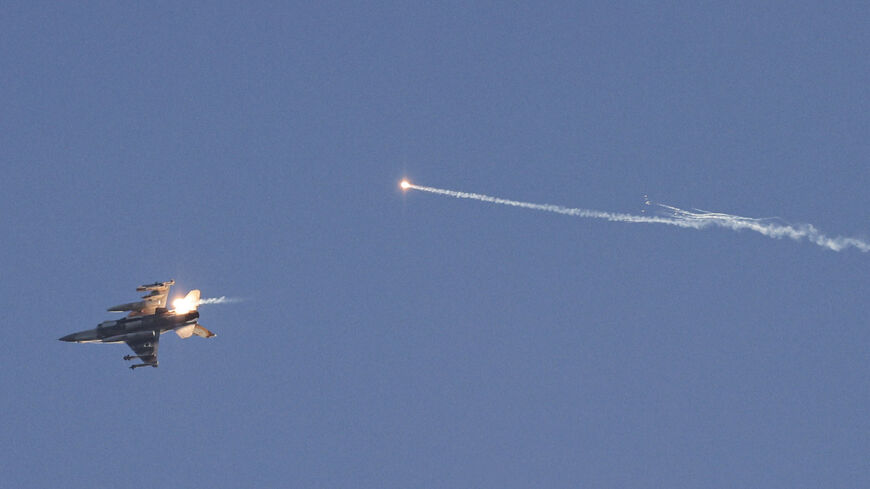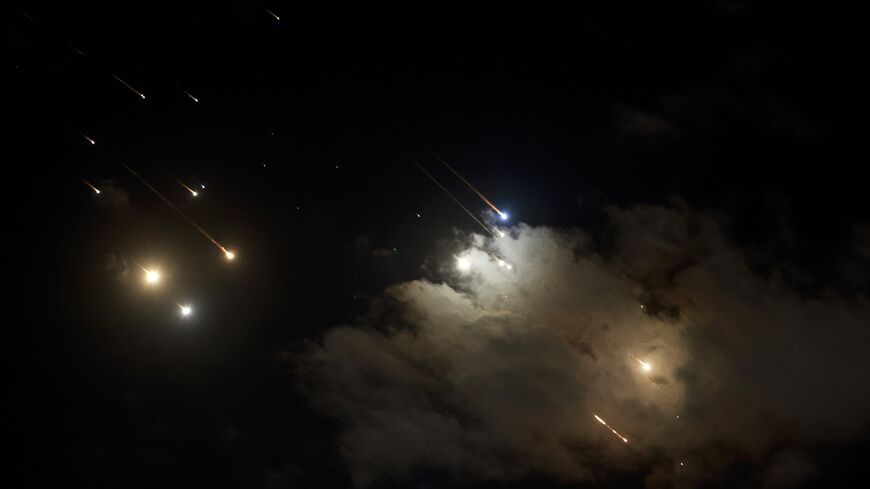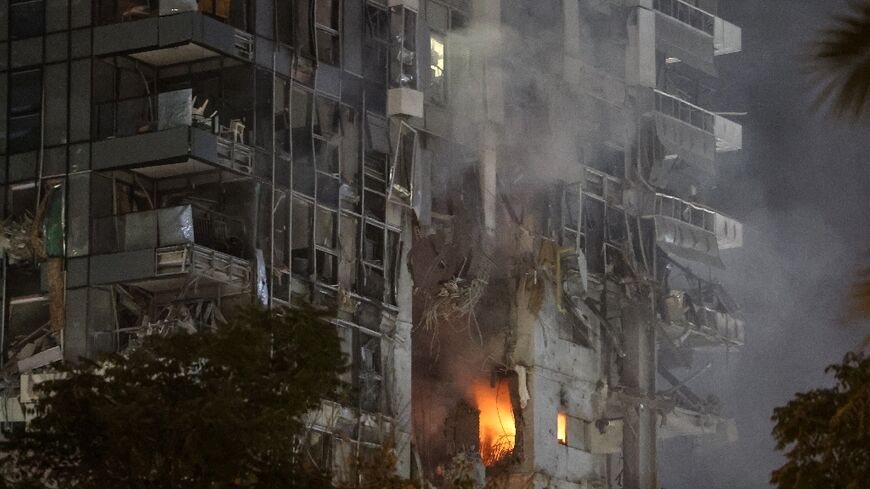‘Declaration of war’: Iran fires 100+ missiles at Israel after airstrikes
Iran fired barrages of ballistic missiles at Israel on Friday night, less than 24 hours after heavy Israeli airstrikes targeted Iranian military installations, commanders and its nuclear program.
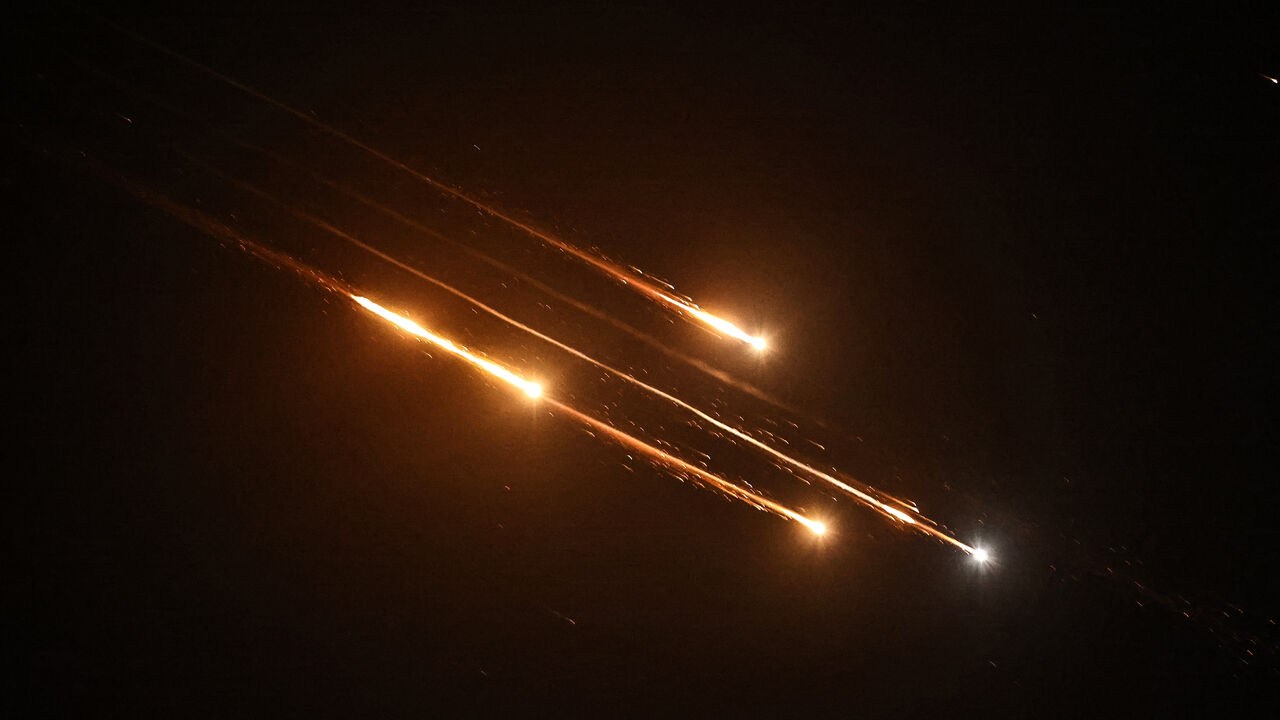
Iran launched more than 100 missiles at Israel late Friday, retaliating for Israeli airstrikes earlier in the day that killed top Iranian military commanders and nuclear scientists and hit key sites, including the country’s main uranium enrichment facility. Sirens sounded across the country as missiles targeted Tel Aviv, Jerusalem, Haifa and elsewhere.
Tehran had declared the Israeli attacks a “declaration of war” and vowed earlier Friday to respond "decisively."
An Iranian official told Reuters that “nowhere in Israel will be safe,” as Iran’s state news agency, IRNA, said hundreds of ballistic missiles have been fired.
The Islamic Revolutionary Guard Corps said in a statement carried by Tasnim News Agency that it launched missile strikes on "dozens of targets in Israel, including military centers and air bases."
The Israeli military said its air defenses were intercepting incoming fire and instructed civilians to seek shelter. Israel's state broadcaster, Kan, reported that the missiles from Iran were directed at both civilian and military targets in the Tel Aviv area.
“Defense systems are operating now to intercept the threat,” Israeli military spokesperson Effie Defrin said. “Israeli citizens must enter the protected areas and remain there until further notice.”
The Israeli military said at 9:28 p.m. local time (2:28 p.m. ET) that another barrage of missiles was headed toward Israel. The military added that interceptions and crashes were causing explosions and that air defenses remain active. Kan reported that the second wave of missiles is targeting Haifa and the Galilee region in northern Israel, while sirens also sounded in Jerusalem.
The Magen David Adom emergency service said seven people in central Israel had been lightly wounded in the Iranian attack.
Earlier in the day, in a letter to the United Nations Security Council, Iranian Foreign Minister Abbas Araghchi said Iran would “respond decisively and proportionally,” and urged the Council to “immediately address” the attacks. Meanwhile, Iran’s supreme leader, Ayatollah Ali Khamenei, appointed new top commanders to replace those killed in the strikes.
In a televised address, Khamenei vowed that Iranian forces "will act with strength," adding that Israel "will not escape this crime unscathed," according to Tasnim.
Reports and videos coming out of Iran around 7:30 p.m. local time (12:00 p.m. ET) showed a fresh wave of Israeli strikes targeting Tehran, Karaj and Qom. The Fordow nuclear enrichment facility — Iran's most heavily fortified nuclear site, located deep underground in a mountain — is located 20 miles northeast of Qom.
Iranian state media reported a fresh round of attacks on Natanz at 1:50 p.m. local time (6:20 a.m. ET) Friday, while explosions were also heard in the northwestern city of Tabriz, near the main airport.
The Israeli military said early Friday in a statement that it had launched airstrikes against “dozens of targets across Iran related to the nuclear program.”
At around 9 p.m. local time in Tehran (1:30 p.m. ET), there were reports of explosions near Iran's nuclear site in Isfahan. Shortly after, the Israeli military said it had attacked the site "under precise intelligence guidance." The military said its attack "destroyed a structure for producing metallic uranium, infrastructure for converting enriched uranium, laboratories and other infrastructure."
According to Iranian media, at least 78 people were killed and 329 injured in Tehran alone on Friday. Majid Farshi, governor of East Azerbaijan province, announced that Israeli strikes in Tabriz killed 18 people and injured 35 others. The overall death toll across Iran remains unconfirmed.
Israel's strikes
Explosions were reported in Tehran around 3:30 a.m. local time (8:00 p.m. ET Thursday), as Israeli strikes hit military and nuclear sites across Iran.
Iranian state TV said the IRGC headquarters in Tehran was among the targets. Prime Minister Benjamin Netanyahu confirmed Israel had struck Iran’s main enrichment site at Natanz, calling the operation “a crucial moment in the history of Israel.”
Israeli jets were striking dozens of sites across Iran, “including nuclear targets, ballistic missile plants and Iranian military structures,” Netanyahu said, claiming Iran had enriched enough uranium for nine bombs and had recently advanced weaponization. “We targeted Iran's leading nuclear scientists working on the Iranian bomb.”
The Israeli military said its strikes destroyed the underground section of Natanz, including a “multi-story enrichment hall with centrifuges, electrical rooms, and other supporting infrastructure.” It added that the attack crippled “critical infrastructure” for weapons-grade enrichment. Iran’s Atomic Energy Organization confirmed damage but said no radioactive or chemical contamination had leaked.
The early morning attack, which the Israeli military described as an "opening strike," also targeted high-level military personnel in an effort to decapitate Iran's security brass.
The New York Times reported on Friday that Esmail Qaani, head of the Islamic Revolutionary Guard Corps' (IRGC) Quds Force, was killed. Tasnim reported that IRGC commander in chief Hossein Salami had been killed in the strike.
اولین تصاویر از انفجارهای تهران لحظاتی پیش pic.twitter.com/wDEVJftqda
— خبرگزاری تسنیم 🇮🇷 (@Tasnimnews_Fa) June 13, 2025
Trump: "It will only get worse"
US President Donald Trump said Friday morning that he had been informed in advance of Israel’s plans to strike Iran.
“Iran cannot have a nuclear bomb, and we are hoping to get back to the negotiating table,” Trump told Fox News. In a post on Truth Social, he added, “They are all DEAD now, and it will only get worse! Make a deal before there is nothing left.”
Trump said he had issued Iran a 60-day ultimatum to return to talks — “Today is day 61,” he wrote — and suggested Iran now has, “perhaps, a second chance.”
Iranian state TV reported that Tehran will not attend the next round of nuclear talks with the United States, previously set for Sunday in Oman.
US officials denied any involvement in the Israeli operation. “We are aware of the strikes. No US involvement, no US assistance,” a US defense official told Al-Monitor. Secretary of State Marco Rubio said in a statement that “our top priority is protecting American forces in the region.”
US military forces in the region helped Israel shoot down ballistic missiles fired by Iran, two defense officials confirmed to Al-Monitor.
There was no confirmation yet which US forces were involved. The United States maintains at least one THAAD anti-ballistic missile battery in Israel, and at least two US Navy destroyers are based in the eastern Mediterranean.
The United States withdrew embassy staff from Iraq earlier this week due to rising tensions.
Update: June 13, 2025. This developing story has been updated since its initial publication.

